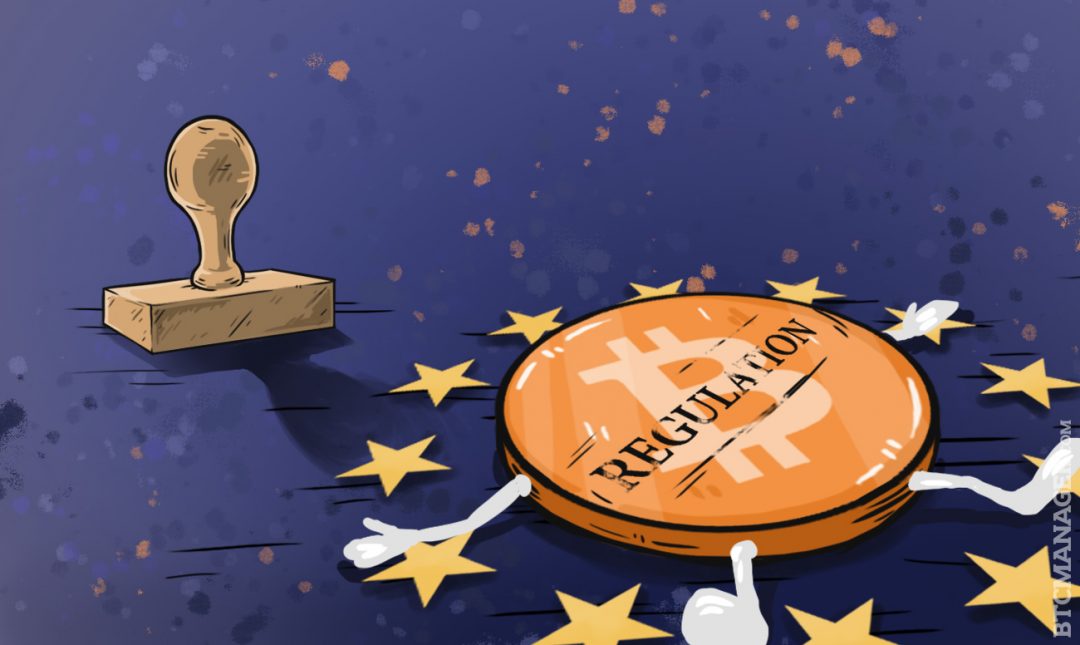European Regulation Takes a Major Step Toward Identifying Bitcoin Users

The Council of the EU confirms the plans of the Commission to regulate both exchanges and wallet providers; this is a major step to an EU-wide regulation of the Bitcoin industry due June 2017.
There has been no sign ever that any terrorist in the whole world has ever used cryptocurrencies. But this does not stop European politicians to propose a stricter regulation of Bitcoin after every terror attack.
With an action plan to tackle terror financing, the legislation of the EU decided in early 2016 to take virtual currencies under the European rules against money laundering. In late December, shortly after the terror attacks on a German Christmas market, the EU Council agreed its negotiation stance, strengthening the EU’s control on monetary flows, which include strict control of virtual currency businesses.
On December 20 the Council confirmed a draft of the EU Commission with some minor changes and asked the upcoming EU presidency to start talks with the Parliament about it. The Council agreed with the proposed ruleset against money laundering and added some additional controls. “Following a spate of terrorist attacks in Europe, it seeks to balance the need for increased security with the need to protect fundamental rights and economic freedoms.”
Beside other things, the Council proposes to lower the threshold for identifying the holders of prepaid cards to €50 and extend verification requirements. Also, it wants “virtual currency exchange platforms and custodian wallet providers” to “apply customer due diligence controls, ending the anonymity associated with such exchanges.”
The draft in negotiation is the core of the EU’s plan against money laundering, tax evasion, and terror financing. It proposes a set of rules that will include Bitcoin and regulate the virtual currency industry in the whole EU.
As part of the action plan to tackle terror financing, the EU Commission announced in July 2016 to bring “virtual currency exchange platforms and custodian wallet providers under the scope of the Anti-Money Laundering Directive.” Consequently, Bitcoin will fall under the Fourth Anti-Money Laundering Directive, a couple of rules and laws to fight unwanted monetary flows.
The Fourth Directive has been released in May 2015 and must be enforced by the members of the EU by June 2017. This ruleset limits payments in cash to an amount of €7,500 and defines entities which have to prevent any unwanted use of money: They must verify the identity of their clients, observe the monetary flows and announce suspicious transactions to the police. Bitcoin and other means of payments should are in the Directive as part of the EU’s action plan to fight terrorism.
While most European Bitcoin exchanges already abide by most of these rules, the plan of the Commission extends them to wallet providers. A press officer of a commissioner explained that every single “virtual currency custodian wallet provider” should be regulated, independently of the amount or kind of cryptocurrency it holds for customers. Every entity that holds private keys or part of a set of keys or any other credential needed to sign a transaction will fall under this definition and will be responsible for preventing money laundering.
Technically providers of Multi-signature wallets like Copay or GreenAddress might get regulated, as well as any altcoin exchange or any platform that holds bitcoin for users, might it be a gambling platform or a provider of payment channels. Not regulated however might be wallets like blockchain.info, which don’t hold the user’s private keys or infrastructure providers like hardware wallet producers. Also, faucets and mining pools should not be regulated, since they do not keep user’s funds.
With the confirmation through the Council, the proposal passed a significant step. The next steps for this to become law is only the discussion and approval by the Parliament. If this happens, and most likely it will then the members of the EU need to regulate the Bitcoin industry by 26 June 2017.












